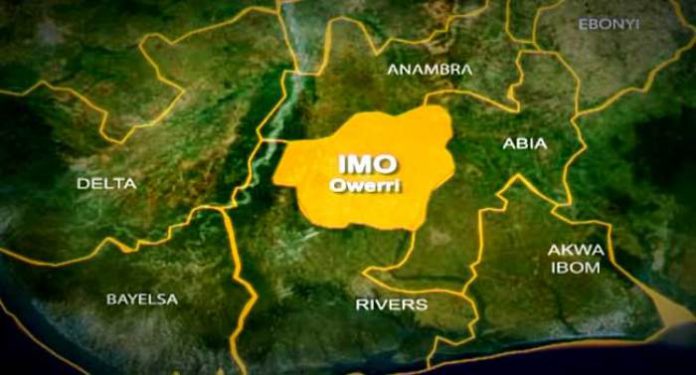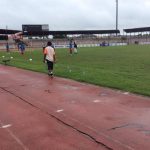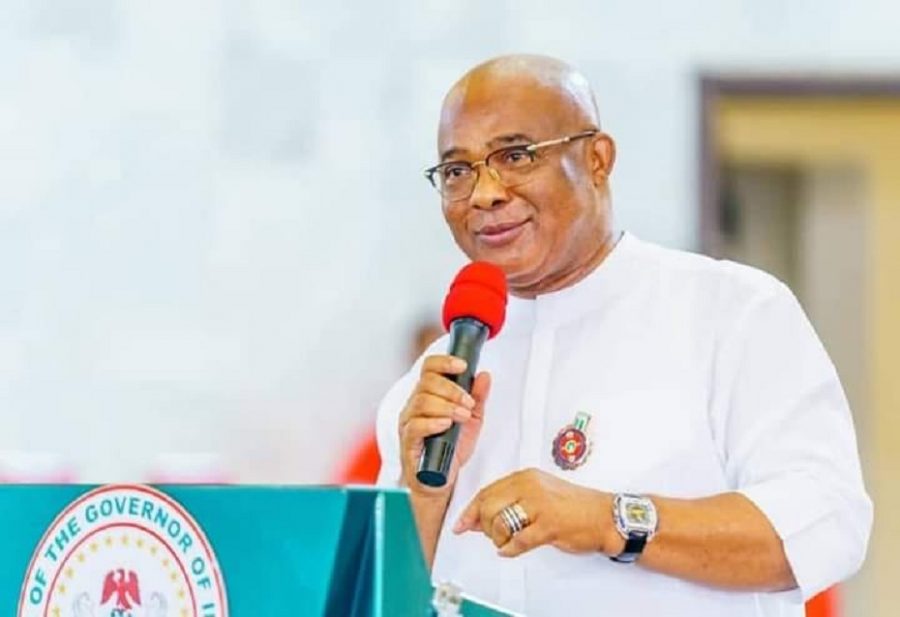.As Goodluck Opiah Takes Lead
Governor Hope Uzodimma has kicked off his second term on a good note as he begins the implementation of the Orashi Energy Free Trade Zone in Mmahu and Abacheke communities in Ohaji-Egbema LGA, even as the government called for cooperation from the host communities.
The state government made the call during two separate meetings with community leaders in Mmahu and Abacheke communities held at the Mmahu Town Hall and the Palace of the Ezeala of Abacheke, respectively. The community leaders at the meetings included the traditional rulers, Town Union Chairmen, Chiefs, youth leaders, and women leaders, etcetera.
Addressing the community leaders on the project, the immediate past Minister of State for Education, Rt. Hon. Goodluck Nanah Opiah, who led a team set up by Governor Hope Uzodimma, told the leaders that the Free Trade Zone will be located in their communities and that the government is seeking their cooperation to deliver the signature project, which is planned to bring industrialization and boost economic activities.
He said: “We are here today to inform the communities that the government is about to begin the implementation of the Orashi Energy Free Trade Zone, which the governor last year promised he would do. The project will be sited in Mmahu and Abacheke communities, and we are here to seek your cooperation.
“You may recall that the governor came up with this lofty project during his first term, and he has the burning desire to actualise the project in his second term. The governor had a lot in his plans, but there were challenges at eveey turn. Nothing was spared in a devilish effort to bring the government down, but thanks to God Almighty that we overcame all of them.
“The benefits from this project will be innumerable. Apart from launching the communities into a new realm of unprecedented economic activities, the host communities will now be on the map of Nigeria as places that have developed. Ships will come in and leave because of the Oguta Lake and Orashi River sea route to the Atlantic Ocean, and we will no longer struggle to transport our agricultural produce or struggle to find markets for them. With time, import and export will be taken for granted, and we will see great wealth in our communities and Imo State in general.”
Thanking the communities for their enthusiasm and cooperation so far, Opiah said the committee will ensure that no community is cheated in any way, adding that the governor does not cut corners and the government will pay adequate compensation to the communities, farmers and property owners on the affected lands after the assessment work has been done.
He assured the communities that the governor is committed to the dredging project and the Orashi Energy Free Trade Zone, adding that the projects are so dear to the governor that he set up the committee a day after his swearing-in ceremony to champion the implementation of the project.
Opiah said: “We are here on behalf of the government to discuss this all-important project and to tell you about the delineation and mapping out exercise. We will start with the external delineation, which comprises taking the geographical points and coordinates, cutting out the boundaries, and separating the proposed project site from the rest of the community land. After that, we will do the internal delineation to determine who owns each land, and then, the assessment and Environmental Impact Assessment (EIA) will follow. When the actual size of the land needed for the project is properly delineated, the communities involved will be compensated. It is true that all lands belong to the government, but the governor does not take lands for development without paying adequate compensation to the communities.
“When the governor came up with this project, many people claimed he was playing politics, but I told them it was not so. Interestingly, the governor set up a committee a day after his swearing-in ceremonies. Today, we are here to discuss the implementation of the project. This project is one of the legacy projects of the governor, and it will bring the development we so much need,” he said.
On his part, the Surveyor General of Imo State, Surveyor Bob Uzodimma, who is also a member of the committee, thanked the communities for their enthusiasm and cooperation with the committee so far, adding that the project will being development to the area.
He said: “This project will bring urbanisation and development, and that is why we are asking you to cooperate with the government. When you go to America and see how beautiful it is, remember that it is some people’s land that the government acquired to bring the development. Lagos State is developing, but remember that all the development is built on some people’s land, and I urge you all to open your heart and embrace this development that is coming to us.”
In their separate responses, community leaders from Mmahu and Abacheke said they are committed to cooperating with the state government for the actualization of the project.
Thanking the delegation from the state government, a notable community leader from Mmahu, Prof. Victor Koga said: “Free trade zone is one project no community will make a mistake about. Mmahu and Abacheke are two great communities, and our resolve is that we will receive this project with all our heart. We cannot miss it because it is the kind of project we need.”
The Paramount Ruler of Abacheke community, Ezeala Sally B. Ikeji expressed happiness that the government decided to site the project on their land, assuring that the community would cooperate with the government. “We want peace and development, and we are ready for development. We have already embraced the free trade zone with all our hearts,” he said.
On his part, the traditional ruler of Mmahu Autonomous Community, HRH Eze Augustine Ikechukwu Iwuogu, who was represented by Ezeali Dr. Nkem Nwoke, the Traditional Prime Minister of the community, said that the community welcomed the project and would cooperate with the government.
He called on the government to ensure that the project is delivered in record time so that the people would justify giving their land to the government.





2 Comments